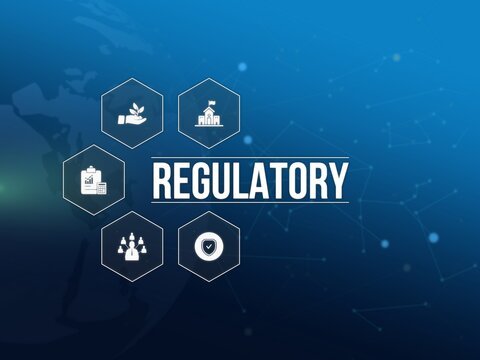Introduction
Impact of COVID-19 Pandemic — The Pandemic that we are under has brought about changes like none other before in human history across different type of professions, the pharmacy being one. Pharmacists, as frontline healthcare workers have been encountering numerous challenges but more importantly have taken advantage and evolved some great fascinating opportunities to innovate and redefine their roles. Recognizing these changes is important for understanding how the pharmacy profession continues to evolve.
The Role of Pharmacists During the Pandemic
Pharmacists have always been essential healthcare providers, but their role became even more critical during the pandemic. They not only continued to dispense medications but also provided vital healthcare services, ensuring patients received necessary care despite widespread disruptions.
Challenges Faced by Pharmacists

Supply Chain Disruptions
The pandemic disrupted drugs and personal protective equipment supply chains globally. This left pharmacists hunting and gathering, often working under significant stress to find necessary supplies for their patients.
Increased Workload and Stress
More COVID-19 cases meant more scripts for pharmacists to fill and increased Breadth 2 tasks, including offering testing services and providing advice on emerging health concerns. This increased burden resulted in high levels of stress and burnout among pharmacy staff.
Risk of Exposure to the Virus
For example, as frontline service providers, pharmacists and their staff were in high risk of coming into contact with COVID-19 due to consistent public interaction. The anxiety worsened by the fear of getting infected even after taking all the precautions.
Adapting to Telehealth and Digital Services
Pharmacists needed to quickly learn how telehealth, etc. was going to be applied and implement it in no time flat. This transition forced me to learn new technology and how to care for patients in an at-home virtual setting, it was really difficult but completely necessary.
Opportunities for Growth and Innovation
Expansion of Telepharmacy
Similarly, the pandemic opened up a huge opportunity for telepharmacy. This included the ability to do pharmacist consultations and manage prescriptions remotely, which would preserve patient care with minimal physical contact.
Strengthened Role in Health Education
Pharmacists were enlisted to be educators in the public health too just to help dispel myths and push out evidence based information about COVID-19. As accessible health providers, they had a unique role in guiding public understanding of vaccine safety and vaccination.
Working Together With Other Healthcare Providers
With the pandemic came a renewed sense of camaraderie among healthcare providers. Pharmacists worked with physicians and nurses as well as Public Health Logicians to optimize care, pool resources, ensure a higher degree of patient health.
Telepharmacy: A New Frontier
Definitions and General data On Telepharmacy
Accessing pharmaceutical services and drug information using telecommunications Digital technology may be used in lieu of telephonecentric technologies. telepharmacy 2428), which allows patients to receive medication counseling, management and other pharmacy services without needing to visit a pharmacy in person.
Benefits of Telepharmacy for Patients and Pharmacists
The advantages of telepharmacy include increased access, convenience and ease of providing care to underserved populations. This gives pharmacists the chance to complete their work more efficiently and help to not compromise on essential services in times of disruption.
Case Studies of Successful Telepharmacy Implementation
Several pharmacies successfully implemented telepharmacy during the pandemic. For example, a rural pharmacy network in the United States used telepharmacy to provide continuous care to patients in remote areas, ensuring they received their medications and counseling without interruption.
Public Health Education and Vaccination
Pharmacists’ Role in COVID-19 Vaccination Campaigns
Pharmacists played a pivotal role in the COVID-19 vaccination campaigns. They administered vaccines, provided information about vaccine safety and efficacy, and helped manage vaccination logistics, contributing significantly to the public health response.
Scanning Sites for Misinformation
Pharmacists undertook a number of educational campaigns in response to misinformation. Influencers were also employed for information dissemination of COVID-19 and vaccination, using social media platforms as well outreach programs that took in-pharmacy consultations to discuss public fears and misconceptions.
Community Outreach Programs
Pharmacists also worked in partnership with community outreach programs to access at-risk populations. The projects that bring this work to the homes of community members exclude mobile vaccination units, health fairs and partnerships with nearby community organizations in order to ensure accurate information and access to care for all.
Collaboration and Interprofessional Relationships
Strengthened Ties with Healthcare Providers
The pandemic strengthened the ties between pharmacists and other healthcare providers. Collaborative efforts included shared patient care plans, joint health initiatives, and coordinated responses to the pandemic’s challenges, highlighting the importance of integrated care.
Integrated Care Models
Integrated care models, where pharmacists are part of a multidisciplinary team, became more prominent. These models improved patient outcomes by ensuring comprehensive care, where medication management and overall health strategies were aligned.
Examples of Successful Collaboration
Successful collaborations included pharmacists working with local health departments to streamline vaccine distribution and partnering with hospitals to manage medication shortages and patient care transitions.
Regulatory Changes and Advocacy

Pandemic Pharmacy Deregulation
Changes in pharmacy scope regulationsThe expanded role of pharmacists has been under pressure from the beginning of the pandemic, and there were numerous regulatory modifications to support their ongoing responsibility. Such changes involved loosening telepharmacy laws, allowing pharmacists to practice at the top of their level, increasing the time period for refill prescriptions and many other ways that permitted pharmacists to make a difference in patient care.
Advocacy Support from Pharmacy Organizations
These regulatory changes were significantly influenced by the lobbying efforts of pharmacy organizations which emphasized the critical role of pharmacists, but they also wanted to be able to change patients’ medications and save their lives too! What they did guaranteed that pharmacists nationwide were able to service high demand the pandemic introduced.
Long-Term Regulatory Impacts
While the regulatory changes implemented during COVID-19 could be many of those most ripe for permanent, longer-term shifts to pharmacy practice. Which could make health care more flexible and responsive to the population.
Technological Advancements in Pharmacy

Adoption of Digital Tools and Software
Working in a pharmacy, the pandemic was also responsible for accelerating the uptake of digital tools and software. These technologies — including electronic health records (EHRs), online prescription services, and automated medication dispensing systems — made everything more efficient in terms of patient care.
VI.AUTOMATION AND ROBOTICS IN PHARMACY
APIs build using Automation and Robotics brought the extrabiometric data from different field into a single unified dataset which helped tremendous in managing high load. Dispensing systems and inventory management automating easy orders decreased pharmacists’ work and improve patient attention.
Future Technological Trends
Looking ahead, further advancements in artificial intelligence (AI), machine learning, and digital health platforms are expected to transform the pharmacy profession, making it more data-driven and patient-centric.
Economic Impact on Pharmacies
Financial Challenges Faced by Independent Pharmacies
Independent pharmacies faced significant financial challenges during the pandemic due to reduced foot traffic, increased operating costs, and supply chain issues. Many struggled to stay afloat, highlighting the need for economic support.
Government Support and Relief Programs
Various government support and relief programs were introduced to help pharmacies cope with the financial strain. These included grants, loans, and subsidies aimed at sustaining operations and retaining staff during the pandemic.
Strategies for Economic Recovery
Pharmacies adopted several strategies for economic recovery, such as diversifying services, enhancing online presence, and improving operational efficiency. These measures helped them navigate the financial challenges and prepare for future growth.
Mental Health and Well-being of Pharmacists

Addressing Burnout and Mental Health Issues
The increased workload and stress took a toll on pharmacists’ mental health. Addressing burnout and mental health issues became crucial, with pharmacies implementing various support systems and resources to help their staff cope.
Available Help and Backup Support
Those support systems ranged from employee assistance programs, mental health counseling and peer support groups. These resources gave pharmacists the support they needed to cope with stress and stay well.
The Significance of Mental health awareness
Increasing the awareness on mental health in pharmacy was required. The approach to mental health allowed pharmacies the ability to keep their staff well and able to provide good quality care for patients.
The Pandemic Era of Patient-Centered Care
Modifying Practices In Patient Care
To address these issues, pharmacies evolved patient care practices to accommodate the current challenges. Such as expanding social distancing, improving cleanliness and sanitization protocols, and teledentistry to safeguard the patients.
Personalized Medicine and Pharmacy Services
Personalized medicine and tailored pharmacy services became more prominent. Pharmacists provided individualized care plans, medication management, and health counseling, ensuring that each patient received the most appropriate care.
Maintaining Patient Trust and Satisfaction
Maintaining patient trust and satisfaction was a priority. By providing reliable information, ensuring medication availability, and offering compassionate care, pharmacists maintained strong relationships with their patients throughout the pandemic.
If your are interested in B.Pharma or D.Pharma courses then KIITS awaits your arrival.
Case Studies: Pharmacy Success Stories
Examples of Pharmacies That Thrived During the Pandemic
Many pharmacies flourished during the pandemic by being creative. One example would be a community pharmacy in New York who saw an increase in patient satisfaction and business growth after enhancing home delivery services as well as conferencing space for telehealth consultations.
Best Practices and Lessons Learned
Creative solutions such as drive-through vaccination clinics, enhanced virtual services and community engagement vacuumed up new lines of customers. These practices showed us how practising with agility and innovation is crucial when encountering difficulties in meeting patient needs.
Future of the Pharmacy Profession Post-COVID-19
Predictions for the Future Landscape of Pharmacy
The future landscape of the pharmacy profession is expected to be more integrated, technologically advanced, and patient-centric. Pharmacists will continue to play a crucial role in public health, personalized medicine, and healthcare innovation.
Potential Long-Term Changes in the Profession
This will likely include the continuation of our telepharmacy services, further roles in public health,and closer collaborations with other healthcare providers. These amendments will help pharmacists to continue to deliver high quality, accessible care.
Conclusion
The COVID-19 pandemic has had a significant impact on the pharmacy profession and offered challenges but also opportunities. Pharmacists have been resilient and responsive to the challenges of the pandemic — embracing change, while not losing sight of innovation and collaboration. In the future, the pharmacy profession will be agile and responsive — able to adapt quickly when faced during a global emergency already changed much of how we live our lives.








